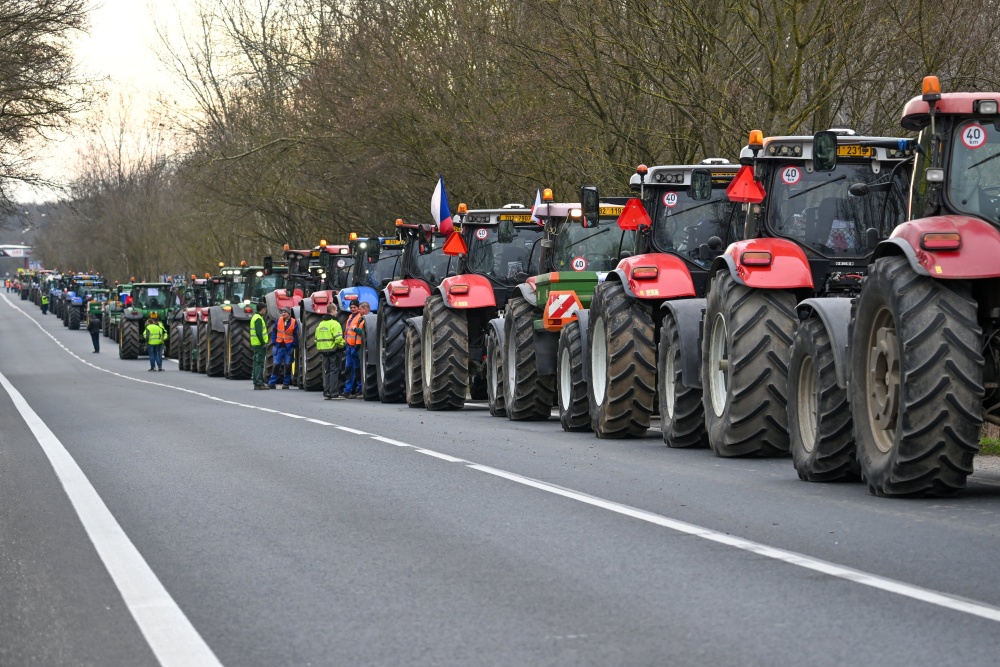
Around three thousand agricultural machines were deployed in the protests.Continue reading
Radical change is needed in the European Union’s agricultural policy, otherwise the EU’s agriculture will face a hopeless situation, the V4 (Hungary, Czech Republic, Poland, and Slovakia) chambers of agriculture stressed in a statement after their meeting.
As the war between Russia and Ukraine continues, European farmers continue to face unpredictable conditions and livelihood difficulties, writes Világgazdaság. At the latest meeting of the Visegrad Group’s chambers of agriculture, they noted that production costs have risen sharply, small and medium-sized farms are facing serious existential problems, while uncontrolled Ukrainian and other third-country products are flooding EU markets. The leaders of the Czech, Polish, Slovak and Hungarian Chambers of Agriculture emphasized that farmers are in urgent need of substantial and rapid assistance, and the European Commission must activate the Common Agricultural Policy‘s crisis reserves. Farmers’ patience is running out, agriculture must be placed at the center of EU policy and given its strategic importance, it must be given priority, the statement underlined.

Protesting farmers. Photo via Facebook/Nemzeti Agrárgazdasági Kamara – NAK
The V4 chambers stress that the European Green Deal in its current form and timing has a serious negative impact on the competitiveness of agriculture.
While member states receive roughly the same level of support as in 2014, farmers face rising production costs, a lack of market access and a loss of purchasing power for the population.
In the face of these difficulties, it is not possible to switch to more sustainable production.
Furthermore, accession negotiations with Ukraine must be preceded by a detailed analysis of the impact of accession on agriculture and the EU’s position in international trade.
The protection of the names of food of animal origin is also an important issue, as there is growing dissatisfaction among farmers and food producers in the EU with the labeling of food of plant origin. The V4 are pushing for EU-level protection not only for milk and dairy products, but also for other foods of animal origin (e.g. meat, meat products, fish, eggs, honey). The aim is that the labeling of plant products should not mislead consumers about their nutritional value.
Via Világgazdaság; Featured image via Facebook/Nemzeti Agrárgazdasági Kamara – NAK